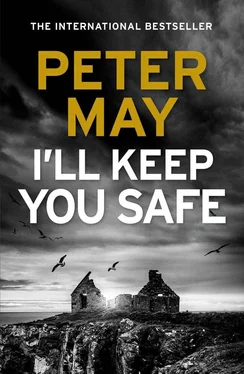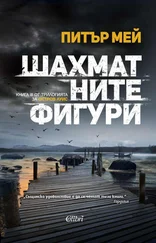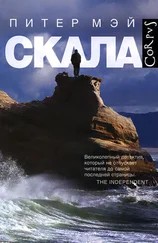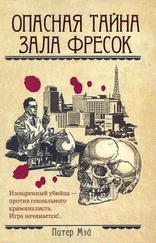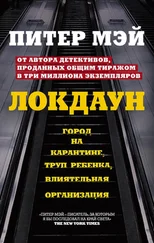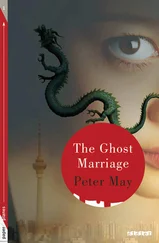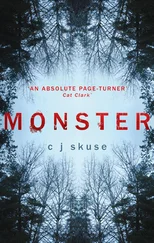Ruairidh was due home that week. Just for a few days, he had said. But I had been counting off the hours, and then the minutes. I missed him. I was hungry for him. We had spent so little time together since the wedding, and not unsurprisingly there was still no sign of a baby. But the news he brought with him caught me completely off guard.
I suppose that the tweed had always been in my blood. There was an old Hattersley loom lying gathering dust in the blackhouse behind our croft. My father had put a new tin roof on the building, rust-red now, and used it as a storehouse. His father had been a weaver most of his days, working for a pittance for the mills in Stornoway, spending hours in that dark, draughty old building weaving his cloth. When I played there as a child, sometimes I imagined I could hear the distant echo of his shuttles flying back and forth across the warp. In those days you could hardly walk through any village on the island without hearing the clack, clack of the shuttles coming from sheds and garages.
No one touched that old loom after he died. Not until my father retired from his job with the council and took up the weaving himself. He spent weeks restoring it, and it warmed my heart to see and hear the ancient Hattersley brought back to life.
My mother’s brothers were both weavers. They shared a shed at Bragar, just a few miles up the road. When we used to visit, me and my cousins would run in and out of that shed, round and round the looms, until one or other of my uncles would lose patience and shout at us to get out.
My mother was a great knitter. When the weather was bad, which was often, she would spend hours in an armchair loading peats on the fire and knitting me and my brothers scarves and jumpers and gloves, and goodness knows what else. One thing’s certain, we were never short of something warm to wear.
Knitting never much appealed to me, although of course I learned how to do it at an early age — knit one, purl one. But I preferred to sit at the table with a yard or two of fabric and fashion clothes for my dollies. When I started making clothes for myself, my mother would take me into Stornoway to search for fabric at Knit & Sew, or at the occasional fabric fairs that visiting salesmen would organize in the Seaforth Hotel. So it seemed only natural, somehow, that I would excel at Home Economics at the Nicolson Institute, and then go on to textile college on the mainland.
It was blowing a hooley the day Ruairidh got back. It must have been March or early April. And the rain was driving in from the south-west on the edge of an equinoctial gale. The Macfarlane croft was west-facing, a narrow strip of land that sloped right down to the shore, and I watched the rain coming in across the bay. Beyond the headland the sea was rising in great white horses that crashed over black and pink seams of gneiss, teetering atop waves of deep green that rolled in off the Atlantic in slow motion.
When I heard the car I ran out into the rain, and we kissed and held each other, battered by the elements, not giving a damn about the wet, or the cold, or getting blown off our feet. We were laughing when we got inside, soaked to the skin, and I suggested pouring a couple of drams. But his smile faded, and I knew straight off that there was something wrong.
He turned away, avoiding my eye. ‘I’ve been made redundant, Niamh.’ And it felt like the bottom had fallen out of our world. I knew I would have to go back to work. Still, I was perplexed.
‘Why, Ruairidh? The oil price has been booming since the financial crisis.’ It made no sense.
He shrugged. ‘Sometimes when business is good companies think they can dispense with people. A rationalization, they’re calling it. It’s not the firm in Aberdeen, it’s the mother company in America.’
‘Could Donald not have spoken up for you?’ Donald was Ruairidh’s older brother by some years, and high up in management. It was Donald who had got Ruairidh the job in the first place.
Ruairidh made a face. ‘He did. Or at least he said he did. But I think everyone’s frightened to speak up, or speak out, in case they’re next.’
I remember sitting down heavily on a kitchen chair and looking around me. This miserable place where I had spent the last few months trying to build our future. Coordinating tradesmen, cleaning and cleaning. Endless cleaning. And painting. It all seemed like such a waste of time now. ‘What are we going to do?’
But I should have known that Ruairidh had a plan. Ruairidh always had a plan. And when I looked up there was a funny, mischievous smile on his face. ‘Every cloud, Niamh...’ He flicked his head towards the window, grinning now. ‘And who should know that better than us, growing up here?’ I knew what he meant. No matter how cloudy the sky, the wind was always shredding it, and the sun was always there, somewhere, ready to splash its gold or silver on the sea, and line every torn edge with gilt. He said, ‘They’ve offered me a very generous redundancy package.’
Which did little to lift my spirits. Money, no matter how much of it you have, runs out very quickly if there’s not more coming in. He saw my despondency and took me by the shoulders, raising me to my feet. His eyes gazed into mine, dark expressive eyes that I had always found so compelling.
‘I want to invest it in our future.’
I felt consternation crinkle around my eyes. ‘How?’
‘A wee idea I’ve had for a while now.’
‘Oh? A wee idea that you’ve never discussed with me?’ I cocked an eyebrow at him and he laughed.
‘It was just a dream,’ he said. ‘Never ever thought I could make it happen. Until now.’
I felt a stab of disappointment. ‘Dreams are for sharing, Ruairidh.’
‘Well, I’m sharing it with you now, amn’t I?’ He grinned again. ‘Put on a face and get yourself ready to go out. We want to make a good impression.’
All down the coast to Garynahine the wind battered our car from the west, and then blew us east across the Leurbost road, the great, dark plain on our right fading off to the south, littered with scraps of lochs catching what little light there was, before rising up into the black mountains of Uig, which were almost lost in cloud. The village of Achmore huddled itself along the roadside, lifting towards the television mast, the only settlement on the island that wasn’t on the sea. And all that way Ruairidh remained resolutely silent. When I asked, with growing exasperation, where we were going, he just smiled that enigmatic smile of his and said, ‘You’ll see.’
Beyond Leurbost and Crossbost the land dropped towards the sea at Ranish and the wind shaded off, the bog punctuated by rock that rose silvery grey out of its burned red winter grasses. It was sheltered here from the fierce Atlantic gales, and the road fell in undulations to a jagged shoreline, the sea breaking white on black rock.
Croft houses sat in sheltered hollows with faces turned towards the Minch and a view on clear days, beyond myriad islands, to the dark shadow laid along the horizon by the Isle of Skye. Ruairidh drew the car into a passing place on a promontory and we stepped out into the blustery afternoon. The rain had stopped, but I felt my hair whipping about my face. ‘Down there,’ he said, pointing, and I followed his finger to a whitewashed cottage that squatted between rocky outcrops. A kelp-covered shoreline dipped steeply away below it, a broken old concrete slipway vanishing into black water that would be a luminous blue in better weather. A flaking pale grey fishing dinghy which had seen better days was pulled up high on the slipway and secured by stout rope to a rusted metal ring. Behind the house, a long, narrow outbuilding was a tashed white, with a green-painted corrugated roof.
I turned and looked at Ruairidh across the roof of the car, patience exhausted. ‘Okay, now you’re going to tell me what we’re doing here.’
Читать дальше
